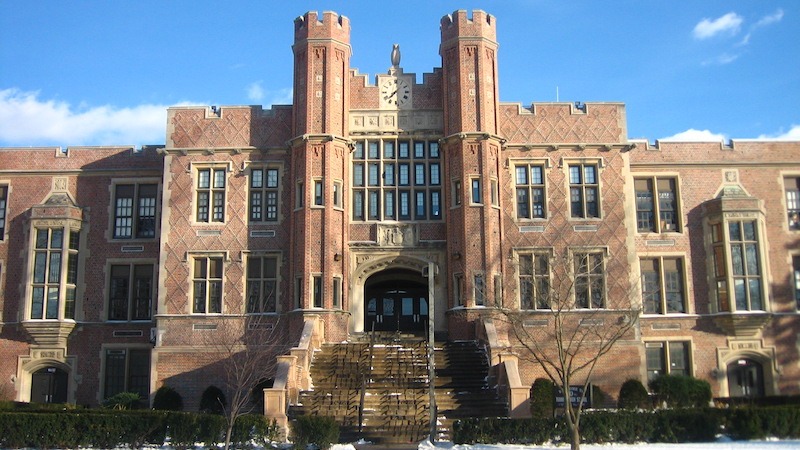In recent years, the conversation around artificial intelligence has shifted from speculative fiction to strategic policy. But while much of the world still associates AI with chatbots, recommendation engines, and digital assistants, the horizon is rapidly expanding toward something far more transformative – superintelligent AI. At the epicenter of this anticipation stands Saudi Arabia, a country that is not only preparing for the coming wave of AI, but positioning itself to shape it.
The implications of superintelligent AI – or ASI – are immense. Whereas current systems like ChatGPT, Gemini, and DALL·E represent narrow AI capable of impressive but domain-limited outputs, ASI would mark a paradigm shift. It would vastly outperform human intelligence across a wide array of fields, ranging from science and technology to creativity, emotion, and governance. And unlike today’s AI models, which rely heavily on pattern recognition within bounded datasets, superintelligence would be capable of general reasoning, adaptive learning, and creativity well beyond current comprehension.
Saudi Arabia recognizes that such a leap in capability demands bold, early action. The Kingdom’s recently announced initiative, Humain, is a strategic signal of intent. Backed by the powerful Public Investment Fund (PIF), Humain aims to not just adopt global AI advances, but build a domestic AI ecosystem from the ground up. With plans to create a multimodal Arabic language model, develop sovereign cloud infrastructure, and drive regional AI innovation, the Kingdom is placing a major bet on intelligence – both artificial and strategic.
One of the clearest indicators of Saudi Arabia’s seriousness is its investment in hardware. The Humain project will be powered by over 18,000 Nvidia Blackwell GPUs – some of the most powerful AI training chips currently available. Collaborations with US tech giants like AMD, Microsoft, and Amazon Web Services further reinforce the scale of ambition. AWS alone plans to invest $5 billion in building an “AI Zone” in the Kingdom, a move that signals a convergence of infrastructure, policy, and capital in preparation for a post-oil economy.
Why is this significant? Because superintelligence isn’t just a software problem – it’s an ecosystem problem. Training ASI will require colossal compute power, advanced neural architecture, and new forms of algorithmic reasoning. It will also demand political foresight, regulatory frameworks, and cultural adaptability. Saudi Arabia’s leadership is banking on its ability to tie all these threads together – fast.
At the policy level, Saudi Arabia is integrating AI readiness into its broader Vision 2030 strategy. This long-term transformation plan aims to reduce the country’s dependence on oil, diversify its economy, and develop public service sectors such as health, education, infrastructure, and tourism. ASI could act as a multiplier across all these areas. Intelligent systems could manage smart cities like NEOM in real time, optimize economic decisions with minimal human input, and radically personalize education and healthcare at scale.
Imagine intelligent agents capable of processing national-scale data to simulate policy outcomes in seconds. Or AI tutors that can teach students not just curriculum but critical thinking, emotional resilience, and cross-cultural skills – all tailored to individual learning styles and national values. This is not idle speculation. These are the scenarios Saudi Arabia is actively preparing for.
In scientific domains, superintelligence could catalyze breakthroughs in biotechnology, medicine, clean energy, and climate modeling. Saudi Arabia, already making strides in hydrogen fuel and biotech innovation, sees AI as a critical enabler. ASI could lead to faster drug discovery, materials with previously unimaginable properties, and energy systems designed by algorithms rather than engineers.
This convergence of technology, economy, and culture places Saudi Arabia in a potentially influential position. Unlike earlier waves of technological change where the Middle East often followed Western or Asian models, this AI revolution may be more pluralistic. Cultural context, linguistic nuance, and sovereign control over data are increasingly recognized as critical to the success and safety of AI deployment.
This makes the Kingdom’s emphasis on Arabic-language AI models and region-specific infrastructure especially strategic. In a world where data governance is becoming as crucial as natural resources, owning the pipelines of intelligence – both literal and metaphorical – offers a long-term competitive edge.
Yet with great promise comes great risk. Superintelligence is not simply an extension of existing tools; it is a fundamentally new kind of power. The dangers of misalignment – where AI goals diverge from human intentions – are not science fiction. Job displacement, inequality, surveillance, and even existential threats have been raised by leading thinkers in the AI field.
Saudi Arabia’s officials appear aware of these stakes. Minister of Communications and Information Technology Abdullah Al-Swaha has emphasized the importance of governance and ethical alignment, stating that the Kingdom must “not just follow standards, but help create them.” This proactive stance could make Saudi Arabia a key player in shaping global norms around superintelligence.
It’s worth noting that many advanced economies are still struggling to draft cohesive policies for today’s AI, let alone what may come in five years. The fact that Saudi Arabia is already talking about AI sovereignty, ethical frameworks, and international standards reveals a growing maturity in its tech policy thinking.
Moreover, this is not a solo endeavor. Saudi Arabia’s approach blends public investment, private sector collaboration, and international partnerships. From Nvidia and AWS to academic cooperation and cross-border research, the Kingdom is using its financial muscle and geopolitical clout to accelerate readiness.
Whether ASI truly emerges by 2028 remains to be seen. Some experts are more conservative in their forecasts, citing unresolved scientific and philosophical challenges. But regardless of exact timing, the trajectory is clear: AI is becoming more general, more capable, and more integrated into national power structures.
In this context, Saudi Arabia’s early moves are not just about prestige or tech adoption – they’re about future-proofing its economy and asserting global influence in a domain that could define the 21st century. The stakes are not just economic or technological, but civilizational.
As nations scramble to define their role in the coming age of artificial superintelligence, Saudi Arabia has chosen not to wait. It is building, investing, educating, and legislating – all with the aim of transforming itself from an oil-dependent economy to a data-driven powerhouse.
In the end, the countries that shape superintelligence won’t just harness its power – they’ll define its values, its boundaries, and its legacy. And if current trends hold, Saudi Arabia may very well be one of them.
Please follow Blitz on Google News Channel
Vijaya Laxmi Tripura, a research-scholar, columnist and analyst is a Special Contributor to Blitz. She lives in Cape Town, South Africa.
saudi-prepares-for-superintelligent-ai-to-lead-the-future














Leave a Reply